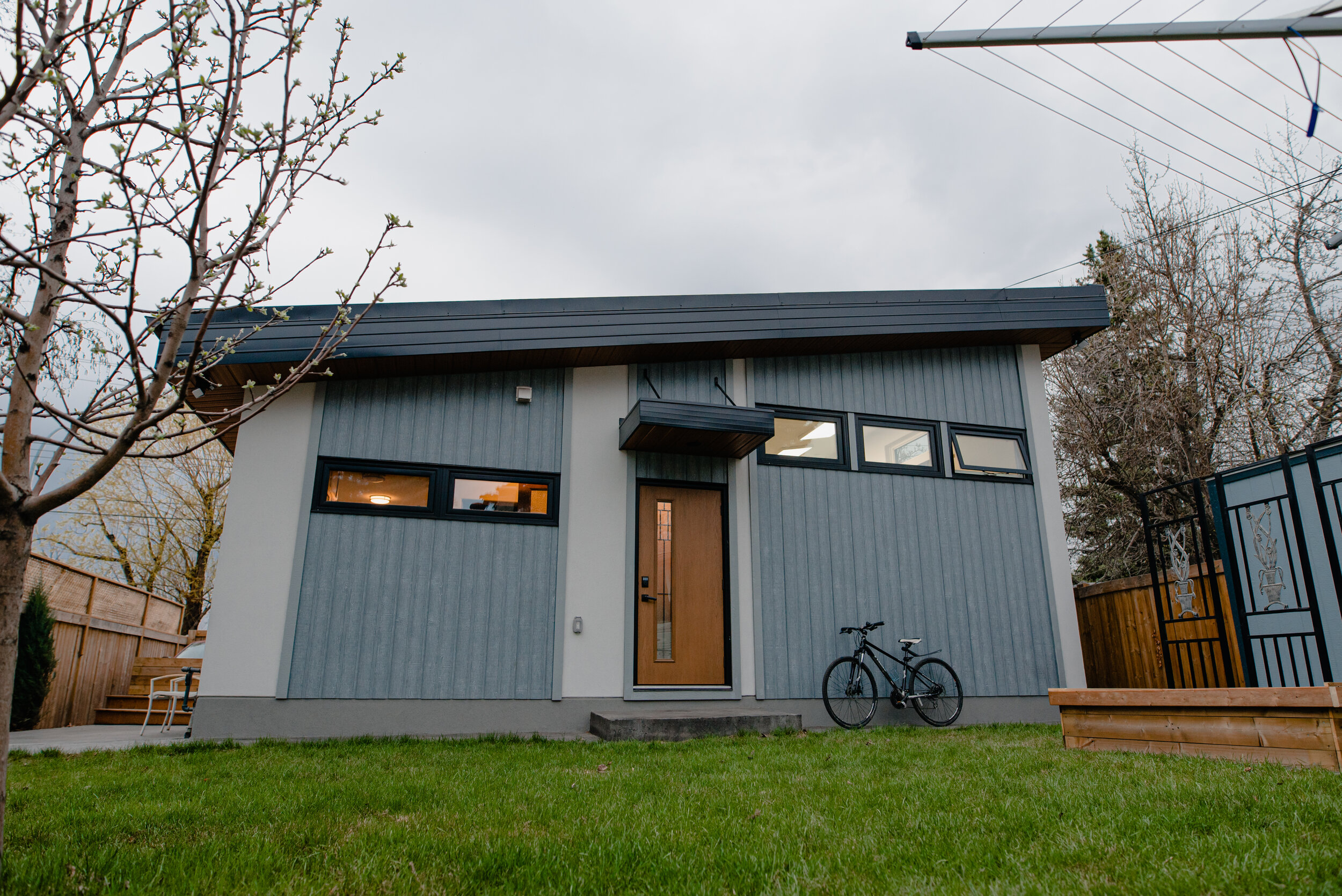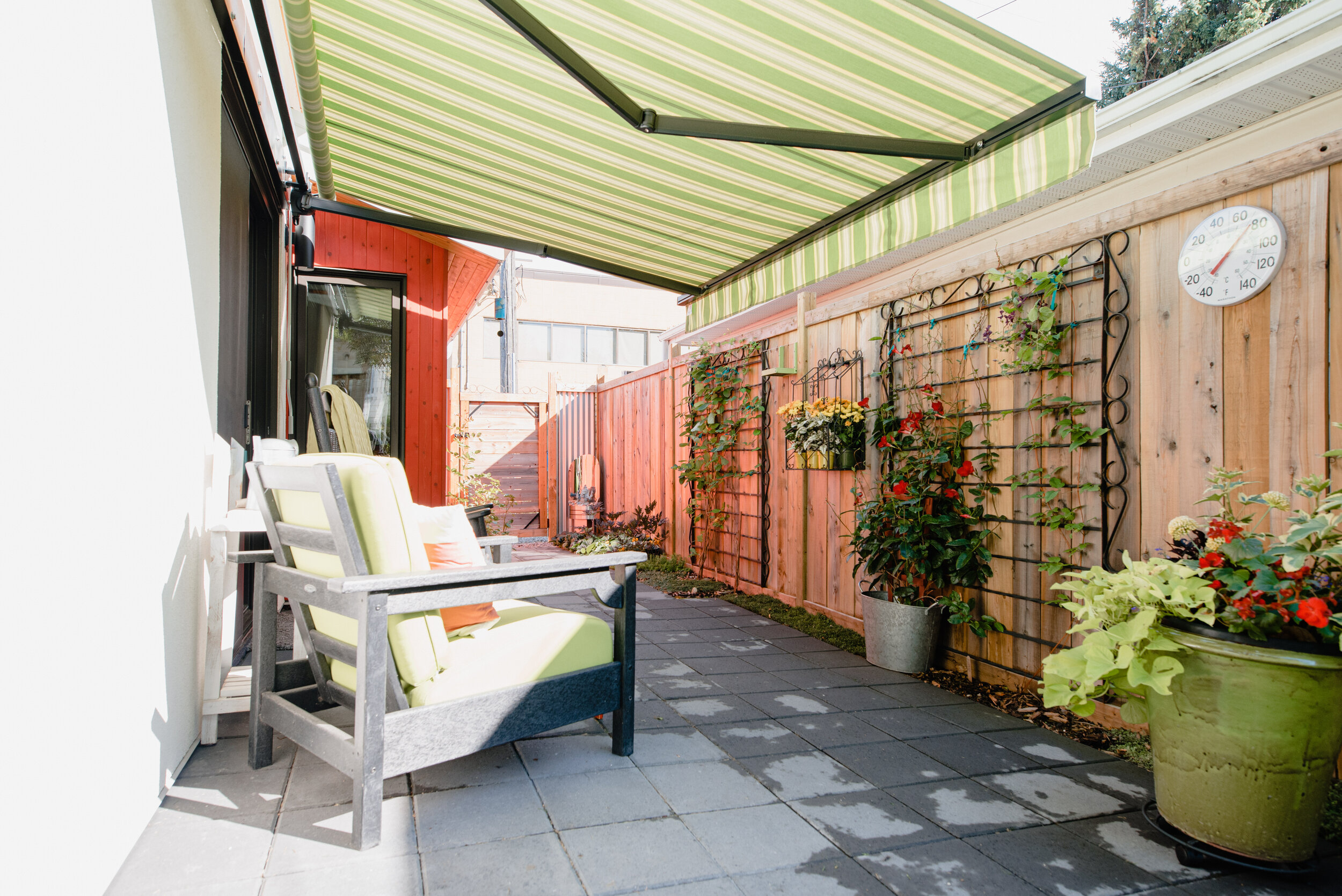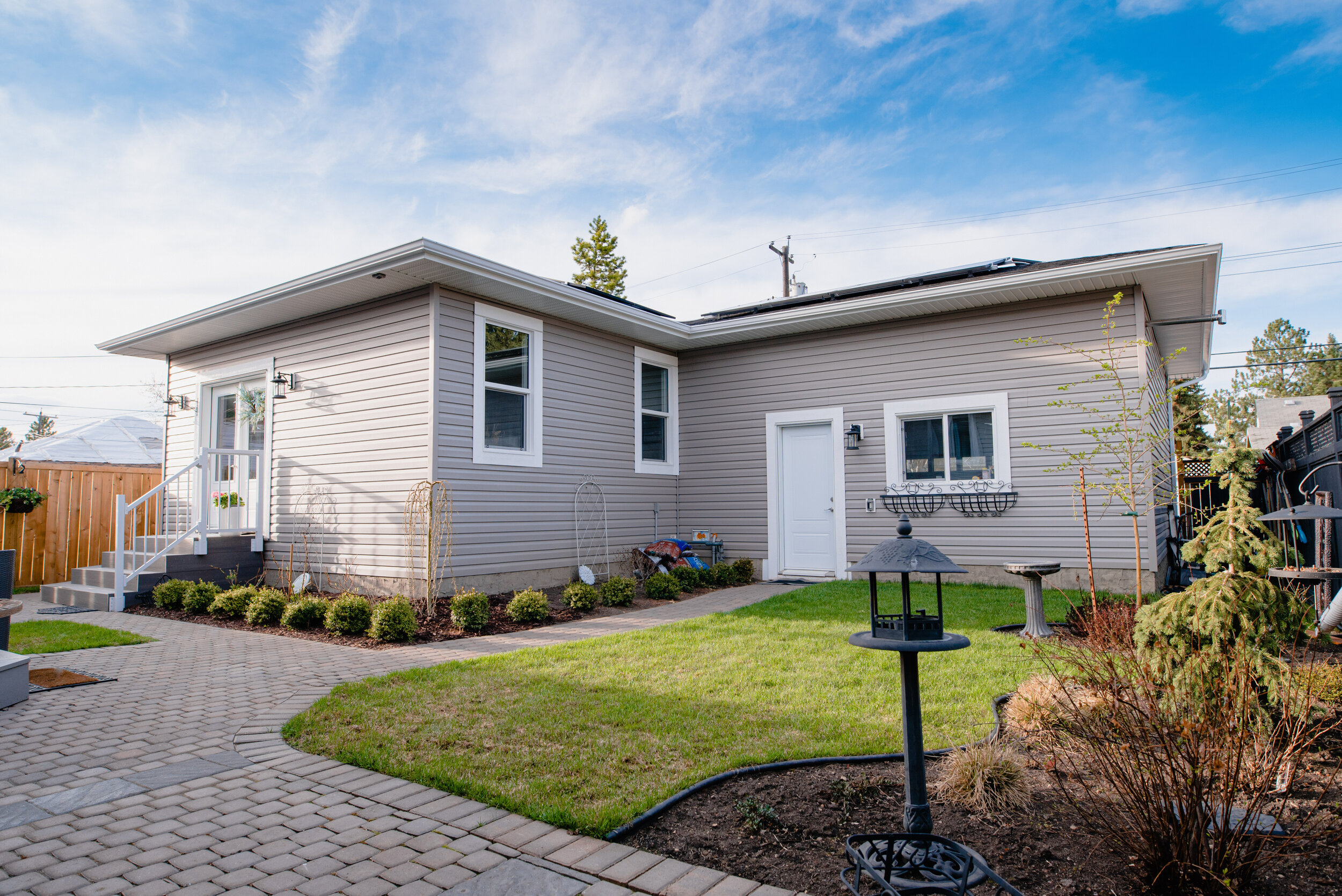Best of 2020: Legalize Accessory Commercial Units
Here’s the understatement of the year: the pandemic has been brutal—absolutely brutal—for small businesses and local economies. Depending on who’s doing the estimating, somewhere between 40% and 85% of restaurants won’t survive the winter. Celebrity chef Andrew Zimmern warned back in August of a restaurant “extinction event.” Brick-and-mortar retailers are getting hit hard too...perhaps especially those small, locally-owned shops that form the quiet fabric of what makes our towns great, but who are less likely to keep up with expensive rent while sales are tanking.
The towns and cities who will lead the way along the road to recovery are those willing to be flexible, responsive, and creative in helping entrepreneurs (a) survive—perhaps by opening some streets and public spaces for outdoor dining—or (b) start something new.
Among the best ideas we’ve heard in this regard is to legalize Accessory Commercial Units. You’ve probably heard of Accessory Dwelling Units, perhaps by one of their other names: granny flats, mother-in-law units, garden suites. They are, as Strong Towns senior editor Daniel Herriges has said, “a quintessentially Strong Towns approach to urban growth and affordability issues: bottom-up, decentralized, incremental, scalable and adaptable. They exemplify the principle of steady, distributed neighborhood change as the antidote to sudden, disruptive neighborhood change.”
Accessory Commercial Units (ACUs) are similar, writes Ashley Salvador in the article below. “Think granny flats,” she says, “but granny gets to sell homemade jam and baked goods out of the front half of her suite.” Salvador explains why ACUs are good for entrepreneurs, good for customers, and ultimately good for cities. She also explains why ACUs are functionally illegal in most cities; they don’t fit well in our current land use, zoning, or lending paradigms. Right now is the time to do something about that.
Lowering the barriers to entry for entrepreneurs helps them build a good life for themselves and their families, helps grow the economic ecosystem of a place, and makes our towns and cities more resilient. Clearing the path for ACUs is a brilliant place to start.
By the way, if you like Ashley Salvador’s article here, you’re in luck. She’ll be popping up again in our “Best of 2020” series. — John Pattison, Content Manager
The Coach House in Waterloo, Ontario
There’s a dearth of small-scale retail space available in most North American cities. It’s blocking budding entrepreneurs, and it’s compromising local resilience.
Chris and Sarah Lawrence own their home in a mature neighborhood in Edmonton. Located next to the University, they purchased their property with the intention of building an alley-facing live-work unit in their backyard—a 400-square-foot retail space on the main floor, with 500-square-feet of living space above.
They wanted to do something unique that would add value to their property while offering a much needed third place to the neighborhood, like a café or bookstore. Things were going smoothly, and neighbors were on-board, but the community-minded couple’s project went sideways when it ran up against local zoning rules.
Due to regulatory red tape that prohibits retail uses from being located in the backyard of a single-family home, the Lawrence’s dream development is functionally illegal, barring a lengthy, complicated, costly, and uncertain rezoning process.
Challenges Facing Would-Be Local Business Owners
Working in the laneway housing space, I meet homeowners on a regular basis who dream of opening up a bike repair shop, gaming café or art studio as part of their development. Most don’t get very far before they’re told their proposed project is too “intense” for a residential area.
These would-be local business owners don’t have the capital to lease super-sized retail bays, which have become the default. And in many cases, they simply don’t need that much space. But, if they could build a small structure on land they already own or turn a portion of their home into a storefront, things start to make financial and practical sense. Would it be so terrible if private citizens like the Lawrences turned their underutilized space—backyards, garages, parking stalls, basement suite—into value-generating community assets? According to most zoning bylaws—yes.
In North America, most cities stipulate that commercial and residential uses remain geographically separate from one another. Retail spaces are typified by big box stores surrounded by large swaths of parking. Commercial spaces offered in new mixed-use developments, although seemingly more attractive and less auto-dependent, are often unattainable due to high costs and minimum unit sizes of 1000 square feet. Neither option is attractive to the artisanal chocolatier or young entrepreneur who wants to try out a new business idea. They can’t risk leasing a costly, oversized storefront.
What about home-based businesses? They may seem like a viable alternative, but zoning bylaws require them to be virtually invisible—they can’t change the character of the neighborhood or produce additional pedestrian or vehicular traffic; no signage; limited numbers of employees; no outdoor activity that could tip anyone off to the fact that something other than a residential use has made its way into the neighborhood. Basically, remove the vibrancy and sociability that makes any great retail space…great.
This segregated model of development is at odds with the fiscal realities of small and micro businesses that don’t fit into the home-based business mold. It’s at odds with changing consumer preferences, and it runs counter to the challenges and aspirations of 21st century cities.
Why ACUs Are Good For Entrepreneurs
Devitt House in Waterloo, Ontario
So how do we reconcile our desire for small-scale, neighborhood commercial with our current retail paradigm? How can we deliver the types of retail spaces our cities and communities are asking for from the ground up?
Enter the Accessory Commercial Unit (ACU). A close cousin to the Accessory Dwelling Unit (ADU), and distant relative to the family-owned and operated storefronts that our country was built on, ACUs are just what they sound like: small commercial units that are accessory to the principal residential use on the site. Think granny flats, but granny gets to sell homemade jam and baked goods out of the front half of her suite. Although they are not a silver bullet, ACUs are a step towards democratizing retail space and a shift away from our Euclidean Zoning roots that created the high-cost, high-tax, high-emissions cities we see today.
First, let’s take a moment to recognize that the concept of ACUs does not fit nicely into our current land use or lending boxes—hence the long list of barriers people like the Lawrences have run into. It’s not a corner store, because it’s located on a residential lot; it’s not a food truck, because it’s a permanent structure; it’s not really an Accessory Dwelling Unit (ADU), because it’s not just for living; and it’s more “intense” than a home-based business.
Next, let’s recognize that that’s okay. ACUs ask us to rethink what needs to be regulated and what we can allow to organically grow in our collective garden. ACUs are an opportunity to add diversity to our urban ecosystem that for too long has remained a monoculture.
We’re not talking about allowing industrial uses with noxious fumes and unbearable noises in someone’s backyard. We’re talking about low-impact, small-scale, hyper-local, homeowner-driven passion projects that will strengthen the social and economic fabric of our neighborhoods.
Camille Downton and Justin Papp have been trying to achieve exactly this for the past two years. They’ve been searching for a property in Edmonton’s mature neighborhoods where they can build a 400-square-foot ACU above a garage to act as Camille’s hair salon. “Your base rent, whether you’re a chair renter or you’re a studio renter is actually very, very high per square foot,” says Downton of typical commercial spaces for hairstylists. “We decided that if I was able to put $1,800 a month (the cost of her current space) towards a mortgage where we already are living, we could obviously have a much bigger, nicer house and also just enhance the neighborhood, potentially people would love it, you know having a hairstylist in their backyard.”
Downton’s logic resonates with many small business owners, and it should resonate with consumers as well. The cost of artificially scarce commercial space translates into pricier lattes, haircuts, yoga classes, and massages.
Ultimately, Downton and Papp would like to build flexibility into the space, so that it can serve a number of retail purposes to help offset costs and create opportunities for other micro businesses. “I was actually thinking of having a retail area with local products that I enjoy, to sell art, jewelry, and stuff from different makers.”
ADUs like these give a sense of what’s possible with ACUs. It’s not difficult to imagine these spaces converted into retail uses. Images courtesy of YEGarden Suites.



Why ACUs Are Good For Cities
Not only are keen entrepreneurs begging for small scale retail opportunities, communities are in desperate need of fine-grained amenities. Many of today’s urban dwellers want their leisure, consumption, health, and employment needs to be met within close proximity to their home in an affordable, accessible manner. People want 15-minute cities. It’s becoming increasingly clear that the cities who can deliver this are the ones that will have a competitive edge coming out of the COVID-19 collapse.
It’s also becoming clear that waiting for big professional land developers to swoop in and transform our communities into dense, walkable, mixed-use neighborhoods is not the answer. Opportunities to bulldoze large swaths of single-family homes and replace them with higher-density, mixed-use developments are few and far between. The process of sterilizing and compartmentalizing our cities and neighborhoods didn’t happen overnight, and a return to complete communities won’t either.
“Village concept retail without villagers is simply a caricature of a way of life that we’ve made illegal. ”
We won’t get there by building more power centers disguised as “town commons.” Village concept retail without villagers is simply a caricature of a way of life that we’ve made illegal. We won’t get there by maintaining prescriptive bylaws that leave little to no room for creativity, innovation, and incremental development. In many ways, our dreams of 15-minute cities depend on allowing homeowners—the largest landholders in North America—to take part in the remaking of their neighborhoods.
“When you see these Accessory Commercial Units, you see that there’s more walkability happening in your community, there’s more people who know everybody, there’s a lot more people that are talking to each other,” says Carly Ashdown, another aspiring ACU owner. Despite the hurdles that stand in her way, Ashdown is determined to turn the garage of her suburban snout house into a permanent location for her business, Raefen Coffee Roasters, which has been serving up small batch coffee at local farmers markets since 2018.
People like Ashdown are the early innovators of ACUs. They have extremely strong motivations, and are determined to overcome the messy, time-consuming, and often expensive regulatory roadblocks just to have a shot at an ACU. Not everyone is willing or able to endure this process. “It’s very frustrating and a lot of people do give up, I see that time and time again, and it just makes my heart hurt,” Ashdown says. Wouldn’t we all be better off if these entrepreneurs had the freedom to invest their limited time and energy into enriching their neighborhoods?
Until zoning bylaws explicitly allow ACUs, widespread adoption will be stalled. Banks and insurance companies won’t develop products for them, building codes will struggle to categorize them, and cities will implicitly be saying no the very individuals that could be helping drive our transition towards more equitable, prosperous, and resilient communities.
Yes, we need density to support ACUs. Yes, they need to be accessible and well-served by transit. But first, we need to open the door to their existence. City-building is not a linear, sequential process. We can and should be working on all of these things simultaneously.
“Most zoning bylaws have become so overgrown that they are blocking budding entrepreneurs. Luckily, most cities have a surplus of underutilized space, where ACUs could take root.”
Most zoning bylaws have become so overgrown that they are blocking budding entrepreneurs. Luckily, most cities have a surplus of underutilized space, where ACUs could take root. In light of the impending consequences of the COVID-19 pandemic, municipalities are not in a position to be denying private investment in local economic development. Creating opportunities for everyday citizens to bring their skills, talents, and assets to market should be a central part of our recovery. Why not let it happen in their own backyards?
About the Author
Ashley Salvador is an urban advocate, community organizer, and social entrepreneur. She is the founder and president of Canada Backyard Housing Association—Canada’s only education and advocacy-based nonprofit dedicated to informing citizens on the benefits, challenges, and regulations surrounding backyard housing. She is also the CEO of Municipaction Inc. and has experience working across sectors on projects related to affordable housing, climate change, social isolation and inclusion, infill policy, and seniors housing.
Born and raised in Edmonton, Ashley holds a MA Planning from the University of Waterloo and a BA Honours in Sustainability and Sociology from Dalhousie University. You can connect with Ashley at her website and on Twitter.



